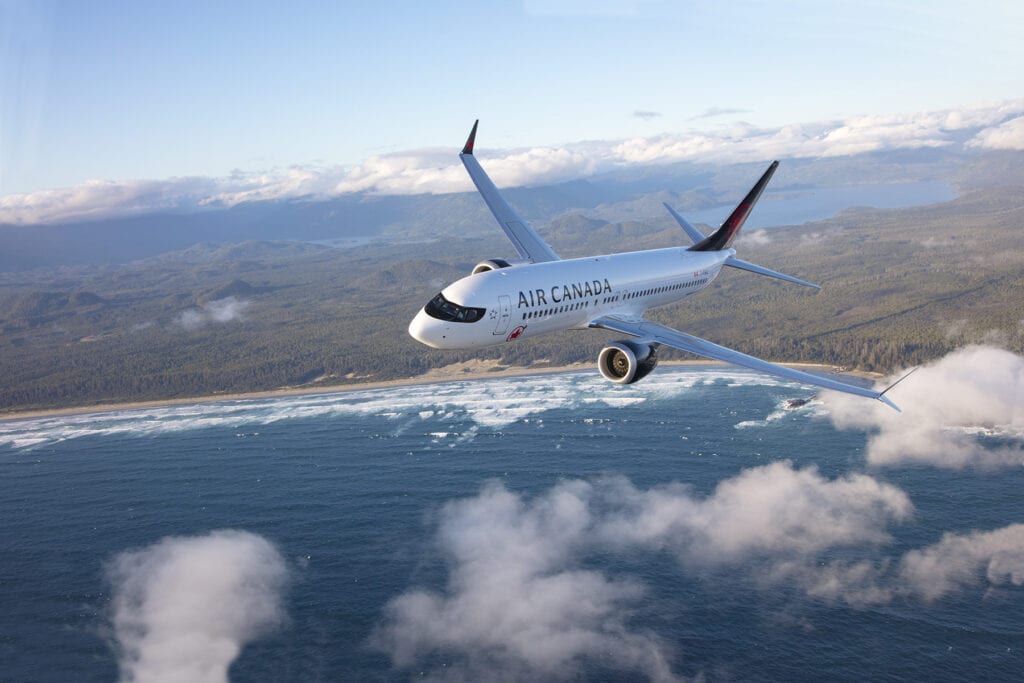
Air Canada says operations with the Airbus A220 and Boeing 737 MAX narrowbody fleets will reduce fuel consumption, CO2, and nitrogen oxides. (Air Canada)
Air Canada is committing to reducing 20 percent of greenhouse gas (GHG) emissions from flights and 30 percent of GHG emissions from ground operations by 2030 in order to get to net-zero GHG emissions by 2050, the international airline announced in a March 15 press release.
To meet these goals Air Canada is targeting fleet and operations, innovation, sustainable aviation fuels (SAF) and clean energy, and carbon reductions and removals, according to the release.
“Economic growth and sustainability are equally important, and we have a strong track record for both,” Michael Rousseau, president and chief executive officer at Air Canada, said in a statement. “Despite the severe impact of the COVID-19 pandemic, we remain deeply committed to long-term sustainability.”
Air Canada says operations with the Airbus A220 and Boeing 737 MAX narrowbody fleets will reduce fuel consumption, CO2, and nitrogen oxides. These aircraft will help to cut fuel consumption per seat by 20 percent, CO2 by 20 percent, and nitrogen oxides by 50 percent, according to the release.
New 2030 and 2050 emissions targets are the latest efforts Air Canada has made to improve its carbon emissions. Among existing initiatives designed the airline undertakes to improve emissions include its carbon footprint, targets and climate protection strategy through the CDP. Along with the new 30-year target, Air Canada will also be reporting through the Task Force on Climate-related Financial Disclosures (“TCFD”) framework as of 2022.
Operational improvements were also realized by Air Canada through “more than 100 projects to optimize fuel consumption, including profile departure, RNP-AR (a type of performance-based navigation), single engine taxiing to, iPads for pilots replacing paper manuals and lighter weight composite onboard carts,” the airline said in the release.
The airline also committed to investing $50 million in SAF and other low carbon aviation fuel development, supporting innovation with electric, hydrogen, or hybrid operations, and exploring carbon-negative emission technologies.
“Climate change is critical, and we believe we can and must do more to address this for the future of our environment,” Rousseau said. “This is why we are further embedding climate considerations into our strategic decision-making, and undertaking a very ambitious plan that is meaningful, will support Canada’s leadership position on climate change, advance de-carbonization in the airline industry while keeping fares affordable for customers.”